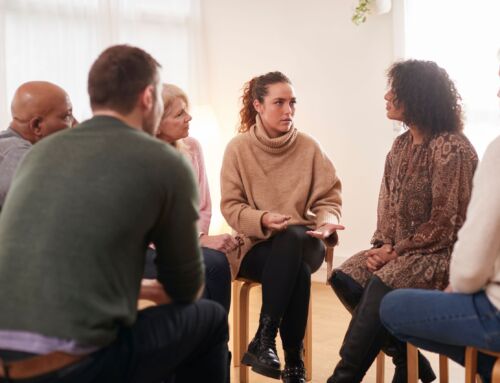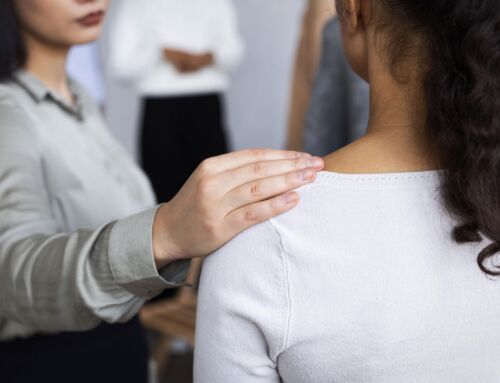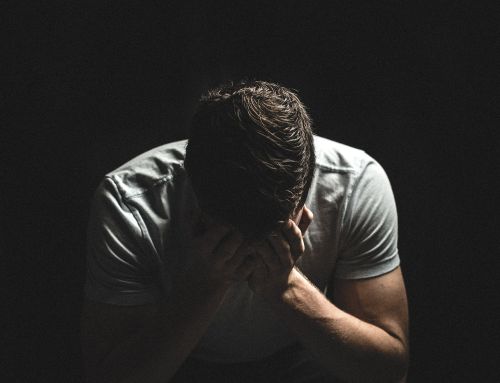There is a well-known, often shared TED Talk from author Johann Hari titled “Everything you think you know about addiction is wrong.” During his talk, Hari is quoted as saying “The opposite of addiction is not sobriety; the opposite of addiction is connection.”
While there have been many who took offense to Hari’s statement, there is truth to it. First, if we are talking about sobriety and recovery from addiction as being interchangeable, we know that sobriety actually IS connection. Addiction is rooted in disconnection, and the solution to the disconnection of addiction is connection, whether that is connection through a higher power, connection through a group, connection through thinking of others, and a greater good, or connection through finding new purpose and direction.
So if we take the premise that the opposite of addiction is recovery through connection, and therefore that recovery means finding connection, what are those that are seeking recovery from addiction, or have found recovery from addiction, to do in the face of a worldwide public health pandemic that requires some form of isolation, social and physical distancing, and somewhat disconnecting in order to overcome it and make sure our global society stays safe and healthy? If those seeking and living in recovery must find connection but are being forced to do otherwise for our friends and family, our communities, our country, and the overall greater good, what can they do to make sure they can still find sobriety and recovery or continue on their recovery journey?
Fortunately, we live in the age of technology, and technology will offer many of the solutions and platforms needed for people seeking help for addiction or living in recovery. Additionally, many holistic practices will be beneficial, and now more than ever many people will have the time to dedicate to these types of healthy daily practices. Finally, professional support is available, even if it means changing some things up during the coronavirus crisis?
Here are some suggestions for ways in which we can find connection in recovery during COVID-19:
Engaging in your regular recovery meetings via technology
Whether through Alcoholics Anonymous, Narcotics Anonymous, SMART Recovery meetings, Celebrate Recovery meetings, Refuge Recovery meetings, or any other self-help or community-based recovery meetings, almost every type of recovery-oriented fellowship or meetings have moved to a virtual platform. So, make sure you are still attending the meetings that you regularly attend in person, only virtually. Make sure you are staying connected to a sponsor, a home group, a fellowship, or any other group through the available access currently available.
Exploring new recovery meetings
One of the unintended benefits of COVID-19 is that we all now have more time and a greater ability to connect to others far away. Because recovery groups and meetings are now virtual, you have the ability to access meetings all over the country, connect with different people, and create new experiences. One of the cooler things we’ve heard is that people that may have gotten sober or found recovery in one area of the country but moved home or moved somewhere else, can now reconnect with old friends in recovery, joining each other’s meetings and homegroups, strengthening and deepening bonds within recovery. Rehab or addiction treatment alumni meetings are now also more accessible, as groups of friends that went through treatment together can now reconnect in alumni meetings virtually.
Seek out mental health and addiction recovery professional support
If you feel that you are struggling in active addiction or struggling in recovery, it is always beneficial to seek out professional help. This can now be done virtually almost anywhere. Whether it is finding a therapist or counselor, a psychiatrist, a support group, a recovery coach, a case manager, or a specialized practitioner, almost every service imaginable is now available through a virtual platform.
Maintain your access and engagement in treatment
If you are engaged in a treatment program, make sure to maintain your attendance. Many outpatient and intensive outpatient (IOP) or partial hospitalization (PHP) programs have moved to offering virtual treatment, so make sure you stay engaged and connected to both the patient population and client community as well as the clinical and recovery support staff. If you were in detox, residential, or inpatient treatment, make sure you engage in aftercare.
Find a “helping others” mindset
As many of us struggle with a “new normal” try to cultivate an attitude of gratitude and a “helping others” mindset. This does not necessarily mean from a recovery lens, but rather a perspective of responsibilities and caring about each other. This is not a natural mindset for everyone. However, if you are a spouse or in a relationship, try to remember your significant other is probably having a difficult time, so see where you can be helpful. If you are a parent, remember that your children are no doubt confused and overwhelmed. Although it is easy to get frustrated, try to remember that children are in need of love and attention and support and reassurance. See where you can be helpful. Try to reach out to that friend that lives alone. Reach out to your family and friends who may be struggling. Reach out to an elderly person that doesn’t have family to help them. Reach out to local non-profits and community organizations and see if there is something you can do to help. Waking up each day with the thought process of “how and where can I be helpful today?” will go a long way to staying connected to your loved ones and your community.
Engaging in holistic practices virtually
Just like addiction treatment and mental health services, many holistic practices have moved to virtual platforms. There are many avenues to explore in terms of virtual holistic practices. Meditation, yoga, fitness classes, breathwork, and other spiritual and holistic options exist. Try to incorporate some that you enjoy into your daily and weekly routine.
Read more, watch TV less
This is probably just good common sense. There is a lot of noise and confusion on the news every day. For many people, this creates fear, and fear creates separation, and separation creates disconnection. Rather than watching the news on an endless loop or continually binge watching television, perhaps try to take some time to read. Find a new book or reexperience a book that you love. This will help cultivate calmness and allow you to reconnect with things you enjoy.
Create a schedule
Creating a schedule helps with connection as it creates regular structure. Without structure, many people find that they feel like they are moving out of control, which in turn causes fear and worry and anxiety. A schedule makes sure that you are meeting your responsibilities while also making sure you find all the time you need to engage in activities you want to do, need to do, and that help you stay connected.
Find purpose, direction, and interests
This may be vague, but if we are floundering about every day, sitting in quarantine due to the coronavirus, and endlessly wondering what is happening, we will find ourselves feeling isolated, alone, and disconnected. To try to reconnect with the things you enjoy doing, the things that give you purpose and direction. Try new hobbies. Gardening, cooking, painting, drawing, puzzles, board games, LEGOS, creating videos with your kids. There are endless possibilities. Engage in creativity. Create family activities to do together. Whatever you find you enjoy doing passionately, do more of it.
If you are religious, find how to engage with your congregation virtually
Many people find their connection through religion or their congregation. If you regularly attend church or synagogue or a mosque, there is a pretty big chance that your congregation or religious organization has also gone virtual. Reach out to your friends or organizational leadership and see what regular events they are hosting. If you were having regular meetings or social gatherings with others in your congregation, make sure to continue to do so over FaceTime or Zoom.
Don’t forget about getting outdoors when and where appropriate
Although we are social distancing and many states are asking that we stay at home, that doesn’t mean we can’t get out and enjoy the outdoors appropriately. Take walks and breathe the fresh air. Enjoy nature. Go for a hike or a bike ride. If you have the ability to mountain climb or rock climb or get out on a body of water, while still keeping up social distancing, make sure to do it. Many of us feel most connected when we are connected with nature.
While we are all socially distanced, it is important that we stay spiritually connected. And while what we are is actually physically distanced, thanks to technology, we may actually have the ability to be more connected to each other than ever before. We all just need to make sure we make the effort to stay connected, to support each other, to reach out if we need help for addiction, and to continue our journey if we have already found recovery. Like with anything in recovery, we will get through this together, if only apart for a short time.
If you or someone you know needs help for addiction or co-occurring disorder issues, please give us a call. Maryland Addiction Recovery Center offers the most comprehensive dual diagnosis addiction treatment in the Mid-Atlantic area. If we aren’t the best fit for you or your loved one, we will take the necessary time to work with you to find a treatment center or provider that better fits your needs. Please give us a call at (410) 773-0500 or email our team at info@marylandaddictionrecovery.com. For more information on all of our drug addiction, alcohol addiction and co-occurring disorder services and recovery resources, please visit our web site at www.marylandaddictionrecovery.com.

Table of Contents
- Engaging in your regular recovery meetings via technology
- Exploring new recovery meetings
- Seek out mental health and addiction recovery professional support
- Maintain your access and engagement in treatment
- Find a “helping others” mindset
- Engaging in holistic practices virtually
- Read more, watch TV less
- Create a schedule
- Find purpose, direction, and interests
- If you are religious, find how to engage with your congregation virtually
- Don’t forget about getting outdoors when and where appropriate





